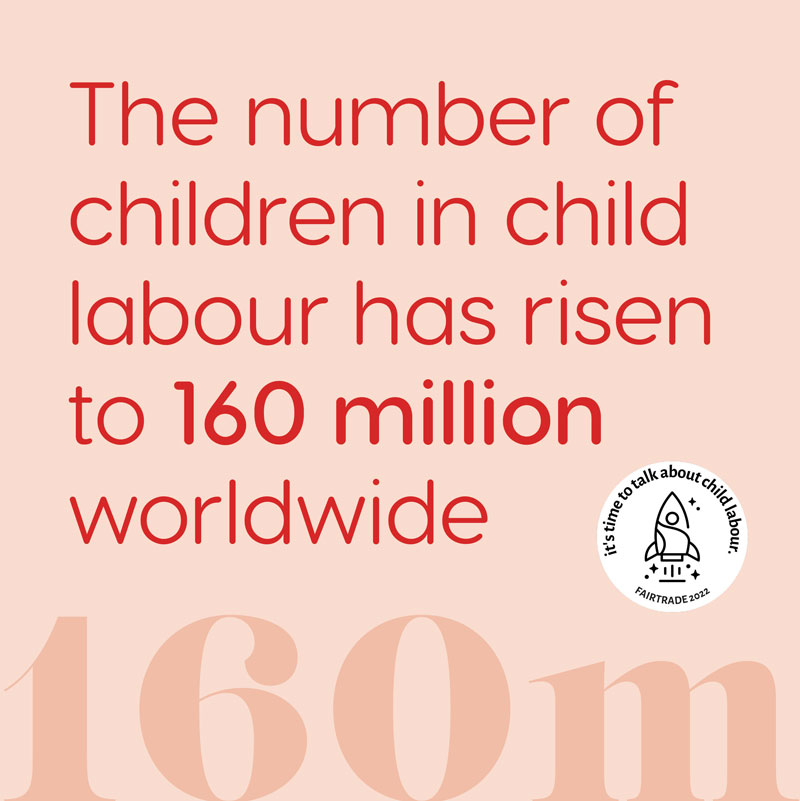Every child deserves a fairer future.
June 12th is World Day Against Child Labour. With the number of children in child labour rising to 160 million worldwide, it’s time for us all to take a stand and do something about ending it – starting with paying Fairtrade prices for cotton.
Child labour now affects one in ten children around the world. In the chocolate industry alone, right now, more than 1.56 million children are involved in cocoa production in Ghana and Cote d’Ivoire. That’s 1.56 million.
And it’s not just chocolate, tea, coffee and bananas; child labour also widespread in the cotton industry. Why? Simply put, it’s because farmers are not paid enough, live way below the poverty line and have no choice but to use illegal labour.
It’s an appalling - and sadly - growing problem. But we know what causes child labour: poverty. And dealing with it starts with one simple step - paying farmers a FAIR price.
Many brands talk about what they’re doing for sustainability and child labour. Ethical Edit has partnered with Fairtrade so that we’re also DOING something about it. Every day. And you are too, by sourcing Fairtrade garments and fabrics.

So, what can we do to stop child labour?
Well, as mentioned, it starts with paying a FAIR (higher) price for the farmers making our cotton. Paying a fair price not only makes a real difference to the livelihoods of the families who produce the cotton (including children), the impact can be far deeper and broader.
That’s why Ethical Edit sources from fair trade suppliers wherever possible. Many of our suppliers are co-operatives, owned by smallholder producers. They not only pay their farmers Fairtrade prices, which means they can afford to educate their children, rather than sending them out to work.
Others provide additional benefits to their workers, including a health plan and funding for their children's education. They are small steps towards fairer lives for children, but they make a massive difference.
What is Fairtrade doing about it?
Fairtrade requires that farmers receive at least a Minimum Price and non-negotiable Premium, which is paid on top of the price. They also require longer-term contracts between producer organisations and buyers, which gives farmers more security to plan for their own futures, as well as those of their children and communities.
The organisation also acts to protect children reported to be involved in child labour within audited supply chains and works directly with farming communities to develop processes to monitor and remediate child labour cases in a way that doesn’t shift the practice to other supply chains.
Fairtrade defines child labour as work that is harmful to a child’s health and wellbeing, and/or interferes with their education, leisure and development.
Fairtrade has joined the ILO and the international community in pledging to end child labour.
By partnering with Fairtrade, we have a fully traceable and transparent supply chain with a rigorous, third-party auditing system. Being Fairtrade certified means high standards for the environment, for women, and above all, for children.
Thank you for choosing FAIR for kids around the world. It’s the ethical thing to do.
#ethicaledit @fairetradeanz #ChooseFairtrade